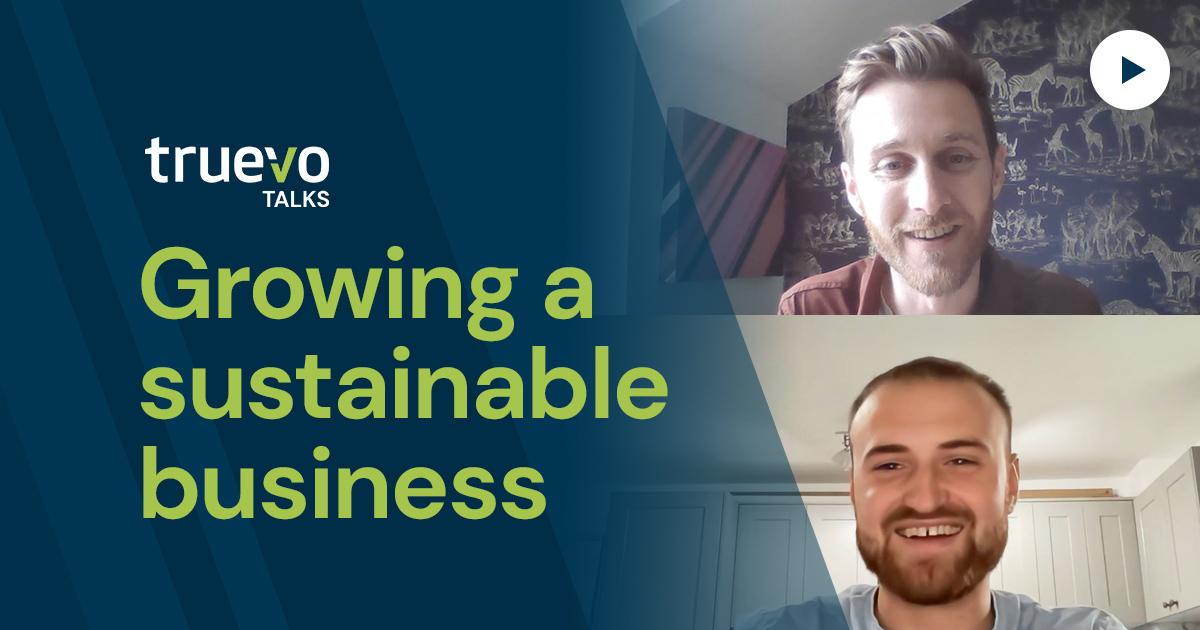In the latest episode of TruevoTalks, we speak to Pete Durant, Head of Marketing at BAM Bamboo Clothing, about sustainability, marketing and the BAM brand. The talk kicks off with Pete summarising the benefits of bamboo as an alternative to cotton. “Bamboo absorbs five times more carbon than hardwood trees. It needs half the land cotton does to produce the same amount of fibre. It also does not need irrigation or pesticides. Add to that how well it works as performance fabric, and you can see why we love bamboo.” The fashion industry contributes 10% of humanity’s carbon emissions. According to the United Nations Environment Programme it dries up water sources, and pollutes rivers and streams. Washing some types of clothing sends significant amounts of microplastics into the ocean. Combine that with 87% of total fibre input used for clothing being sent to landfills or incinerated. You sit with an industry more harmful to the environment than international flights and shipping combined.
Impact Positive
BAM is aware of the clothing industry’s harmful impact on the environment and wants to counter it by being impact positive by 2030. Pete talks about sustainability and explains that BAM focuses on three aspects: nature, climate and people. “We’re rebelling against pure synthetics, i.e. plastics like polyester and synthetic clothing. They’re made of fossil fuels that are terrible for nature and the climate.” He further explains how synthetic fibres promote sweat, where bamboo naturally wicks water away because it doesn’t react to your skin. It means you don’t have to wash bamboo clothing as often. “You can wear it to the gym four or five times before every wash.”
BAM has revolutionised the fashion industry by creating a range with end-of-life in mind. “Essentially, what it means is that you can recycle the clothing. So the denim is designed to be recycled. It’s easy to cut out. We don’t use certain buttons made of metal that limit recycling companies. We’re also launching our first season of circular fleece, made of recycled polyester. When you’re done with the garment you can send it back to us to break it down to polyester again. So nothing ever goes to a landfill. By 2030 we want all our clothing to be circular.”
Pete talks about the collaboration between Sharewear and Bamboo. Shower is an organisation that stops clothing poverty in the UK. “If you don’t have activewear or shoes or clothing Shower steps in to help. Bamboo offers a free bag service. When you order clothing and you don’t want your old clothing, you can send it back to us in the free bag and we give it to Shower to distribute.”
Greenwashing
If you break it down, sustainability is much more than just using environmentally friendly fabrics. It drills down to the trucks you use for delivery, what you do with your waste, where you manufacture, humane working conditions etc. Bamboo was one of the first fashion brands to start talking about the environment and alternative fabrics years ago. Today, almost every clothing brand claims sustainability. Pete talks about greenwashing and how it has become the norm. He also expands on why policing is a challenge.
Say all of the above in three words
How do you communicate or reflect such an aspirational sustainability message in your marketing material? “In a press release, or on our website, we can explain what we mean with all the claims we make. But if you only have a headline, you have to break it down to the essence. We go through every product and find the most significant claim we can make on each of them. We then use it across platforms, depending on the context. And then we repeat it again and again.”
Pete talks more about platforms and context. “We’re interrupting people’s lives with our content. It has to be in context and relevant so that they can absorb the message. So often people are just irritated with your message if you’re interrupting something important they are watching. So it doesn’t do your brand any favours, no matter what the content is.
Listen to the full episode of #TruevoTalks here to dig deeper into educational and environmental marketing, greenwashing and much more.



